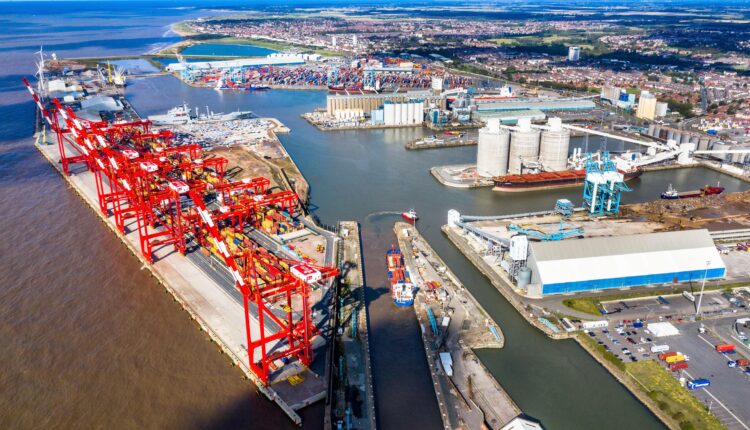Liverpool city region Freeport offers rewards – and risks
Chancellor Rishi Sunak has designated Liverpool city region as one of eight new Freeports – the decision has been broadly welcomed but there are possible risks and downsides. Tony McDonough reports
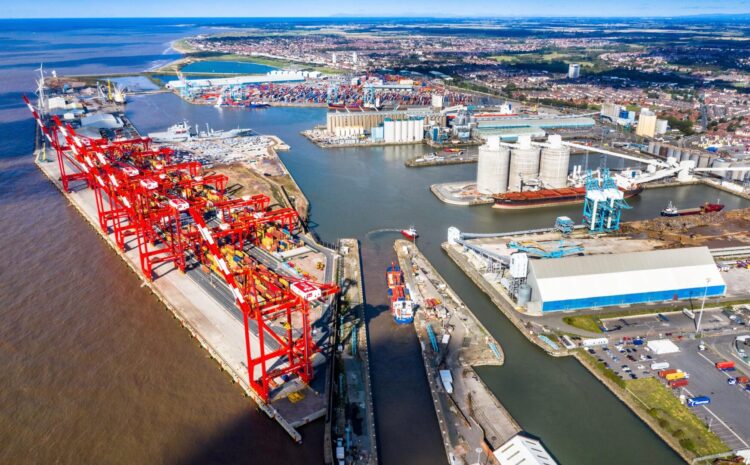
In the days running up to Rishi Sunak’s spring Budget business leaders in Liverpool city region heard conflicting rumours on whether or not there would be an announcement on Freeports.
And late on in his speech to the House of Commons, the Chancellor gave the news that Merseyside had been waiting to hear. The region would be one of eight new English Freeports. Most people were pleased, but there are warnings of downsides.
Also on the list are Thames, Solent, East Midlands, Freeport East (Felixstowe and Harwich), Plymouth and South Devon, Humber and Teeside. It is expected more Freeport locations will be revealed at a later date.
A flagship policy in the Conservative’s 2019 election manifesto, Freeports are designated zones where normal tax and customs rules do not apply. These can be airports or other hubs as well as maritime ports. At a freeport, imports can enter with simplified customs documentation and without paying tariffs.
When the news was announced last Wednesday, it was enthusiastically welcomed by the partners in Merseyside who were behind the bid. These included the Liverpool City Region Local Enterprise Partnership, industry body Mersey Maritime and Port of Liverpool and Wirral Waters owner Peel Group.
They estimate a Freeport could boost the city region’s GVA by £850m and help to create 14,000 new jobs by attracting new investment. Chris Shirling-Rooke, chief executive of Mersey Maritime which represents the £4bn maritime sector, said he was “over the moon”.
Mr Sunak said Britain’s departure from the EU was critical in enabling it to set up Freeports in the UK. This claim was treated with some scepticism. There are some 80 Freeports or free zones within the EU and, until 2012, Britain had seven Freeports, including on at the Port of Liverpool.
However, unlike the previous incarnation, Liverpool city region’s new Freeport will have a much bigger geographical footprint, covering multiple locations. These include the Port of Liverpool, Wirral Waters, Liverpool John Lennon Airport, logistics sites in Knowsley, Sefton, St Helens and West Lancs and the Stobart rail freight terminal in Halton.
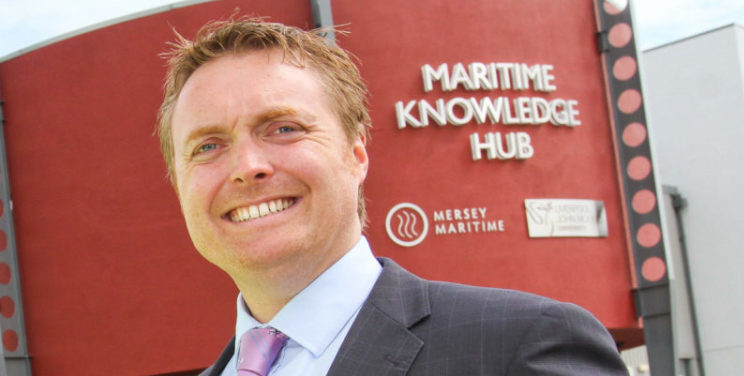
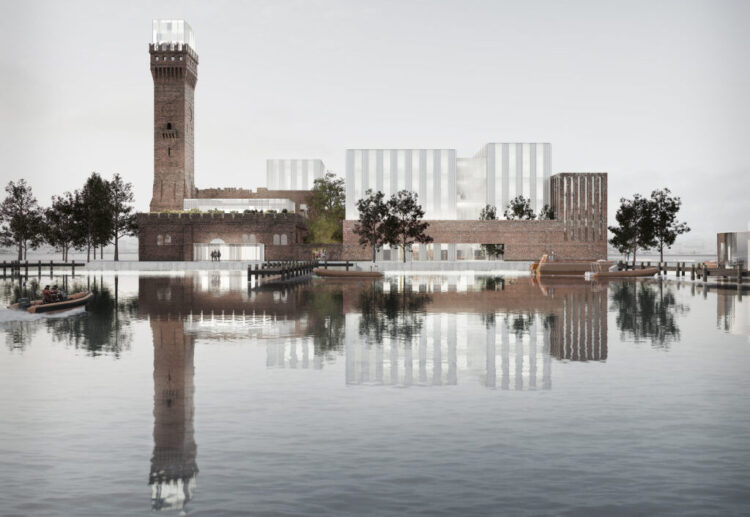
It will even stretch outside of the city region. Taking in the Manchester Ship Canal stretching all the way to Port Salford at the far end of the canal. Peel Ports, which owns and operates the Port of Liverpool, the ship canal, and Port Salford is understandably pleased with the announcement.
Global gateway
David Huck, managing director of Peel Ports, said: “While we are only one of the partners in this public and private sector joint initiative, the Port of Liverpool is clearly the largest global gateway to the new regional freeport.
“How we see our role is helping with wider city region to achieve the greatest possible benefit from its freeport status. The £400m investment we have made on the Liverpool2 container terminal is a huge enabler. It’s the combination of the outstanding facilities here and the freeport status for the region that will really make the difference.”
Peel Ports is investing another £140m into the expansion of Liverpool2, creating 150 new jobs. A new set of cranes has arrived in the past few days. It has already secured a number of new freight services from some of the biggest shipping lines in the world in the last few months.
Maersk and MSC have both switched transatlantic container routes from southern English Ports to the Port of Liverpool. With Liverpool being the UK’s premier westward-facing port, Peel sees huge potential from a possible post-Brexit trade deal with the US.
Mersey Maritime and another division of Peel Group, Peel L&P, are delighted the Freeport zone will include the multi-billion Wirral Waters scheme where work on building new homes and commercial developments is already under way.
Wirral Waters’ flagship project is the 60,000 sq ft Maritime Knowledge Hub (MKH). First announced at London Shipping Week six years ago, the MKH project will provide a national base for marine engineering research, development and decarbonisation as well as skills training and business accelerator space.
It will create 4,000 jobs in its first five years. Work is scheduled to start this year. It will be built around the Grade II-listed 19th century hydraulic tower building, a copy of the Palazzo Vecchio in Florence, close to the Birkenhead waterfront.
Mr Shirling-Rooke said: “We are particularly delighted that the Freeports announcement will put the MKH in Wirral Waters at the heart of the opportunity this represents for this area to benefit from the levelling up agenda. It will be so crucial as we emerge from the COVID-19 challenge and the impact that has had on our local economy.”
So far, so good, but Freeports are not without their detractors. Supporters argue they hey encourage imports by lowering duty and paperwork costs. Manufacturers based inside the Freeport can take advantage of cheaper imported components.
Tax evasion
But there is the risk than rather then creating new economic activity, they simply entice companies away from other areas with the promise of tax breaks. Such displacement activity could see a fall in tax revenue to the UK Treasury.
There is also a fear that Freeports could become magnets for tax evaders and criminals looking to launder their ill-gotten gains. In 2019 a report by the European Parliament called for freeports to be scrapped across the EU for this reason.
Michael Harris, financial crime consultant at LexisNexis Risk Solutions, the global data and analytics provider, said: “Freeports will provide a welcome boost to local economies. It is crucial, however, that this does not become an opportunity for criminal activity to enter the UK via the back door.
“In recent years, there has been numerous examples of vulnerabilities in free trade zones, with trade in high valuable goods being funded by illicit money. It is imperative that lessons are learned from this to ensure that firms taking advantage of the tax breaks and other benefits are held to account.
“Authorities granting access to firms, need to take a risk-based approach and conduct adequate levels of checks and due diligence on both the company, its beneficial owner and key executives to ensure there are no known financial crime or reputational risks.
“From day one, we must have effective regulatory control and proper governance in place to ensure that we keep bad actors out. If not, we risk the Government repeating previous mistakes, allowing criminals to take advantage of inadequate fraud and due diligence checks.”
Local impact
People living close to the Port of Liverpool are also concerned about what the Freeport status will mean for them. While acknowledging the wider economic benefits of the expansion of the port, they have long been worried about the impacts of greater volumes of road traffic coming in and out of the port.
The Save Rimrose Valley campaign has, for several years, been fighting a proposal by Highways England to build a dual carriageway down the entire length of Rimrose Valley Country Park, severing it in two.
Highways England claims the road would actually reduce pollution from lorries coming to and from the port. There was a public consultation on the plan to upgrade the current A5036 Liverpool Port Access Road but the campaign claims both options that were put forward were both “unpalatable” to local people.
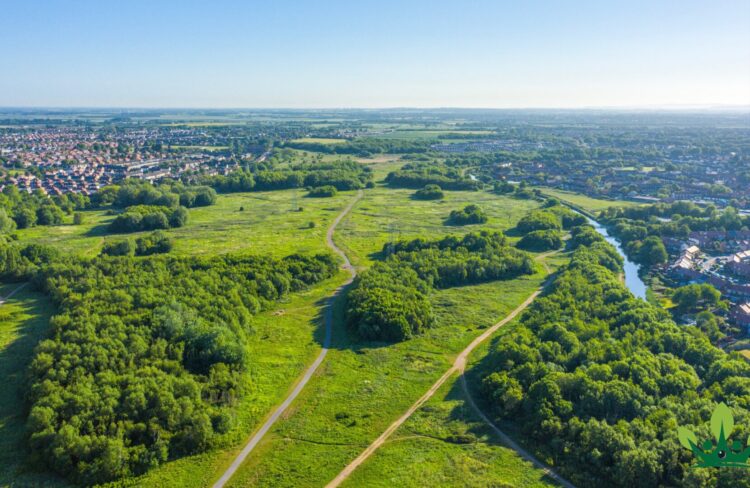
Leaders of the campaign are calling on Liverpool City Region Metro Mayor, Steve Rotheram, and the business community, to use Liverpool’s newfound freeport status as a catalyst for a transport infrastructure revolution in Sefton and beyond.
Sefton Council recently commissioned global consultancy Arup, to report on non-road alternatives to port access including rail. Save Rimrose Valley says the reports offers genuine alternatives to the new road and could improve life for everyone in the south of the borough as well as protecting vital green space.
Speaking on behalf of the campaign, Stuart Bennett said: “The Liverpool city region and the maritime sector were quick to back the Freeport bid, as they’re banking on this being good for business and the wider economy.
“If that is the case, they should be equally keen to back Sefton Council’s calls for better transport infrastructure that actually facilitates growth without dumping more traffic and pollution on the local communities and destroying precious green space.
“We feel that it’s only right and fair that those who stand to benefit from this the most – Peel Ports and Peel Land & Property in particular – have a duty to see that this growth is responsible and sustainable. Otherwise, it will be seen by many as nothing more than a money and land-grabbing exercise by the port.
“Our Metro Mayor, Steve Rotheram, must give this issue the attention it deserves. He should be supporting our council and our MPs in calling on central Government to abandon the road and instead to invest in clean and safe ways of moving goods into and out of the port. This is likely to be a big issue for Sefton voters in the forthcoming Metro Mayor elections.”

